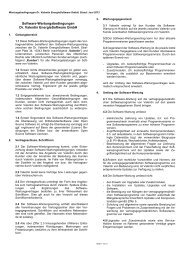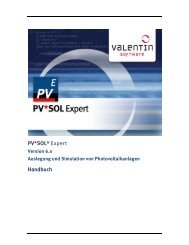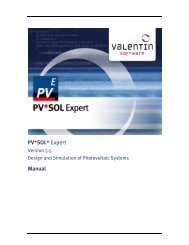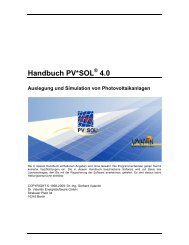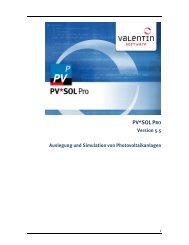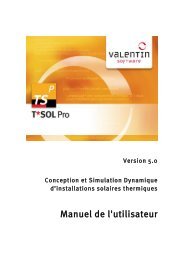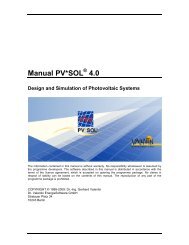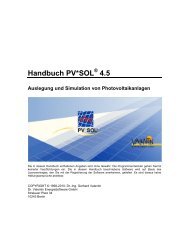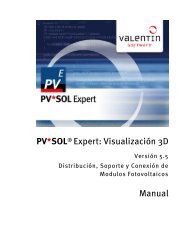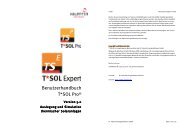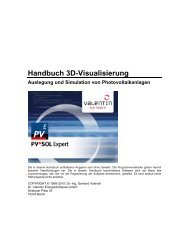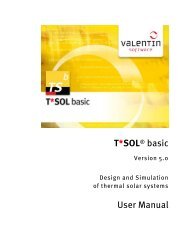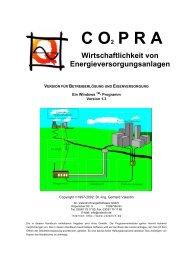PV*SOL Expert 6.0 - Manual - Valentin Software
PV*SOL Expert 6.0 - Manual - Valentin Software
PV*SOL Expert 6.0 - Manual - Valentin Software
You also want an ePaper? Increase the reach of your titles
YUMPU automatically turns print PDFs into web optimized ePapers that Google loves.
13.2.2 Module Part Load Operation<br />
The module’s operation under part load conditions is calculated from the specifications for<br />
no-load voltage, short circuit current, MPP voltage and MPP current with low irradiation<br />
and a module temperature of 25°C.<br />
The second working point, ie the choice of irradiation level, has to be set under certain<br />
restrictions. It must be selected so that, at the irradiation point set, the fill factor is at<br />
maximum, or so that, with lower irradiation, the fill factor becomes considerably smaller<br />
and with higher irradiation the fill factor is around the maximum value.<br />
The definition of the fill factor is:<br />
FF = (MPP current * MPP voltage)<br />
/ (short circuit current * no-load voltage)<br />
The fill factor (FF) is dependent on the irradiation. If a FF above the irradiation is applied,<br />
this results in the fill factor function. Depending on the module and the irradiation, the FF<br />
is usually set at around 55% and 85%.<br />
If you don’t have any suitable specifications for part load operation, you can run the<br />
calculation with standard values by clicking on the Typical Part Load Operation button.<br />
For most modules, the irradiation at the fill factor maximum is 300 W/m². The fill factor is<br />
set at 5% above the FF under standard test conditions. Linear part load operation is given<br />
for the current.<br />
After you have entered the values for module part load operation, it is essential to take a<br />
look at the efficiency characteristic curve and to test that there are no discrepancies.<br />
170



